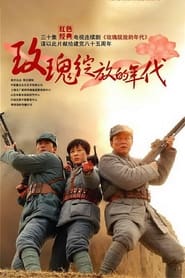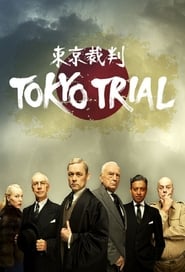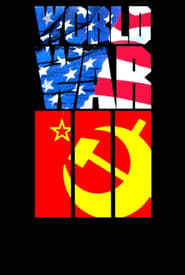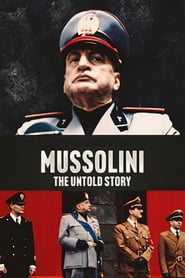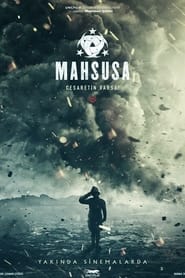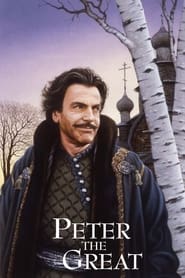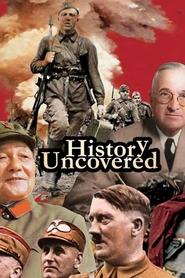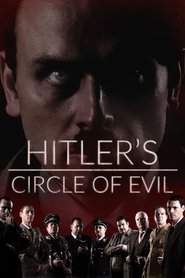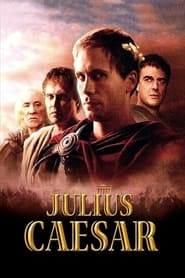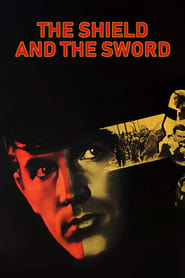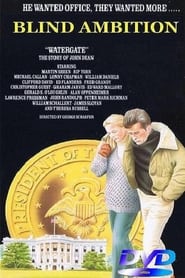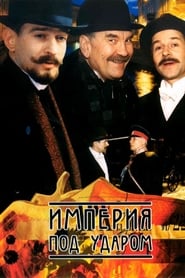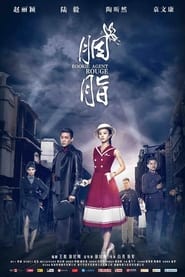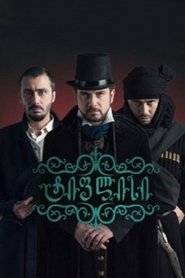War Politics TV Series - Page 34
-
Tokyo Trial
2016
Tokyo Trial
2016
star 6.6In the wake of World War II, 11 Allied judges are tasked with weighing the fates of Japanese war criminals in a tense international trial. -
World War III
1982
World War III
1982
star 6.2When starving mobs begin rioting in the streets of Moscow, Soviet leaders believe they have no recourse but to seize the Alaskan pipeline to force the United States to end the grain embargo that has brought turmoil to the U.S.S.R. -
Revolution!
2021
Revolution!
2021
star 8This is the “embedded” French Revolution that we want to share: an exceptional, immersive experience seen through cameras that dive into the heart of history, following its every jolt. It's the story of the fall of the world's most glorious, most powerful ad most ancient monarchy. -
Mussolini: The Untold Story
1985
star 4.9The rise and fall of Italy's fascist dictator Benito Mussolini. Recounting his life with his wife, children and mistress, this biography (based on the recollections of Mussolini's eldest son, Vittorio) chronicles Il Duce's tyranny as he plunges Italy into the dark days of World War II. -
Mahsusa
2023
-
Peter the Great
1986
Peter the Great
1986
star 7.9Peter the Great is a 1986 NBC television mini-series starring Maximilian Schell as Russian emperor Peter the Great, and based on the biography by Robert K. Massie. It won three Primetime Emmy Awards, including the award for Outstanding Miniseries. -
Zoraki Başkan
2009
-
History Uncovered
2019
History Uncovered
2019
star 7.1Myths die hard, and the history of the 20th century is no exception to this rule. Even today, we hold popular beliefs that we take for Evangelical truths. Thus, we believe that Hiroshima caused Japan to surrender, that the Marshall Plan saved Europe, that Adolf Hitler was a military genius, or that Mao Zedong was a necessary evil for China’s modernization. Of course, these judgements contain some truth; but, too broad-stroked to be accurate, they contradict the historical reality by denying its complexity. What if the truth was slightly different? Through an exploration of great national or international myths, this full archive documentary collection revisits the key moments of the 20th century with a new perspective in order to provide a new, smarter and more subtle interpretation, bringing elements to light that have been forgotten or sometimes overshadowed. -
Hitler's Circle of Evil
2018
star 7.1Surviving power struggles, betrayals and plots, Hitler's inner circle of Nazi leaders seizes control of Germany and designs its disastrous future. -
The Last Post
2017
The Last Post
2017
star 6.6Drama series set in the mid-sixties, in which a unit of Royal Military Police officers and their families deal with the challenges of politics, love and war in British-controlled Aden. -
When Heroes Fly
2018
When Heroes Fly
2018
star 7.2Eleven years after falling out, four friends, war veterans of a Special Forces unit, reunite for one final mission: to find Yaeli, a former lover of one of them and sister of another. Their journey will take them deep into the Colombian jungle but, as to succeed, first they must confront the trauma that tore them apart. -
Julius Caesar
2002
Julius Caesar
2002
star 5.8Twenty year-old Julius Caesar flees Rome for his life during the reign of Sulla but through skill and ambition rises four decades later to become Rome's supreme dictator. -
The Shield and the Sword
1968
star 6.6The year is 1940 and Nazi Germany is at the height of its military prowess, having captured most of Europe and eyeing the Soviet Union to the East. The Russian military command suspects hostile intent from Germany and so arranges for its spies to infiltrate ranks of the German military and the SS. Alexander Belov is a Russian spy, who travels from Soviet-held Latvia to Nazi Germany under an alias of Johann Weiss. His mastery of the German language, steel nerves and an ability to manipulate others help him to use his connections in the SS to ascend the ladder of the German intelligence. He uses his position to identify sympathetic Germans, who help him to procure vital intelligence, and to help local resistance movements in their collective fight against Nazism. -
Blind Ambition
1979
Blind Ambition
1979
star 5.5The Watergate crisis as viewed by John Dean and his wife Maureen, based on their personal accounts -- his best-seller, her book on how it affected their marriage -- and distilled into an eight-hour drama with all of the political figures of the day parading by as Dean relates his story to his attorney when his world, based on blind ambition, begins crashing down on him. -
Empire is Under Attack
2000
star 7.2In this TV-series the events of the beginning of the 20th century in Russia are highlighted. Revolutioners, terrorists, spies - and investigator Putilovskii and his team fight them as best they can. -
9th May. Personal Attitude
2008
A series of short films about the war, shot by young directors. Each of them had to fit their personal attitude to the Great Patriotic War into three minutes of screen time. -
Rookie Agent Rouge
2016
Rookie Agent Rouge
2016
star 5.6Can a young woman prove her loyalty to her country and her family? Lan Yan Zhi is a privileged banker’s daughter in Shanghai and a student activist who mistakenly comes into possession of a letter from the Japanese Army in 1937. She gets misunderstood for a spy by her crush, Zhou Yu Hao, an upstanding officer in the Chinese Army. To prove her innocence, Yan Zhi agrees to infiltrate the home of her best friend, Feng Man Na, and help Yu Hao track down a mysterious “Mister Traitor.” But what will Yan Zhi do when the search leads to a member of her own family? -
Tiflis
2014
